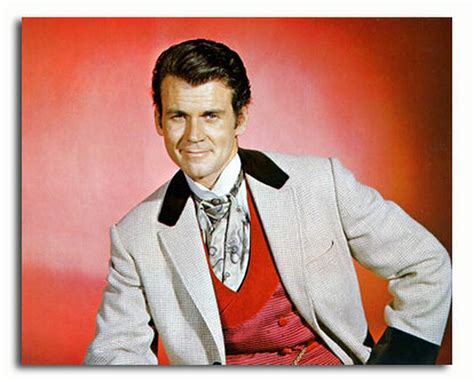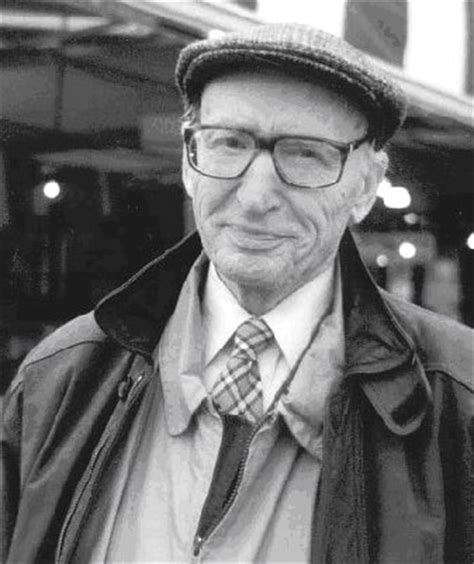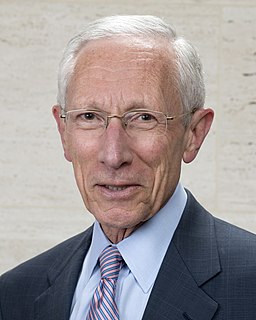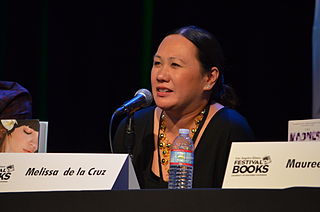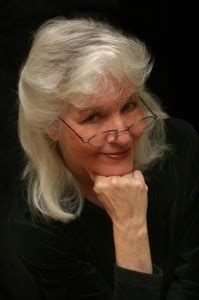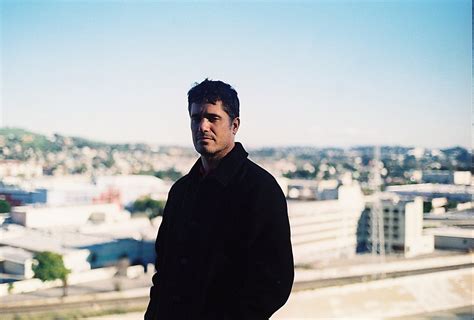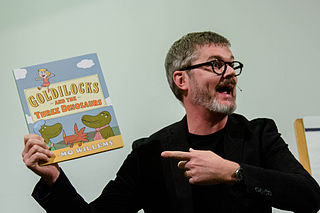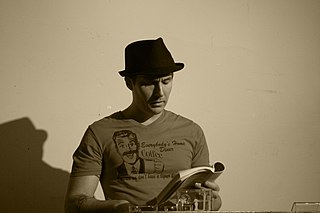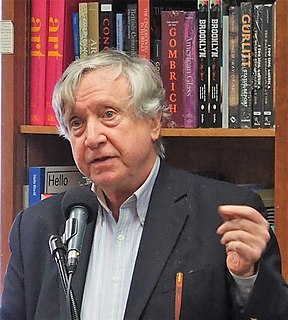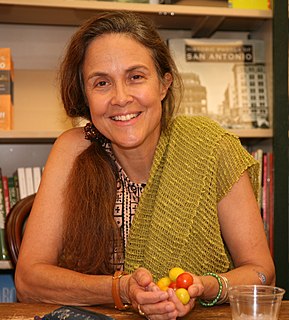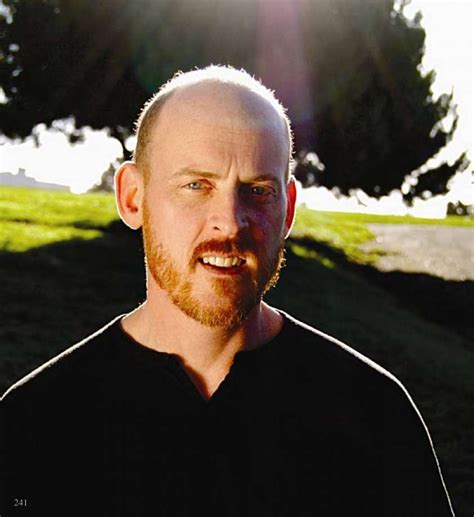Top 173 Revision Quotes & Sayings - Page 3
Explore popular Revision quotes.
Last updated on November 15, 2024.
It takes a fearless, unflinching love and deep humility to accept the universe as it is. The most effective way he knew to accomplish that, the most powerful tool at his disposal, was the scientific method, which over time winnows out deception. It can't give you absolute truth because science is a permanent revolution, always subject to revision, but it can give you successive approximations of reality.
I have never written a novel that volleys back and forth between a couple of different first person perspectives. It's definitely a challenge because I had to think about who knows what, when do they know it, when are they sharing what they know or what they think they know, how the reader's perspective affects things. Telling the story in that way is challenging. It does require a lot of revision.
The longer I write, the more important I believe it is to write the first draft as fast as possible. In drafting, I push myself so I am at the edge of discomfort...Later, it will be time for consideration and reconsideration, slow, careful revision and editing. But on the first draft I have to achieve velocity, just as you do if you want the bike to balance.
Every issue of the paper presents an opportunity and a duty to say something courageous and true; to rise above the mediocre and conventional; to say something that will command the respect of the intelligent, the educated, the independent part of the community; to rise above fear of partisanship and fear of popular prejudice. I would rather have one article a day of this sort; and these ten or twenty lines might readily represent a whole day's hard work in the way of concentrated, intense thinking and revision, polish of style, weighing of words.
In a poem, the words happen; they just come. I let them. Otherwise, I wouldn't write. To interfere with what is happening is to distort the poem. Just a very small degree of intelligence and supervision is necessary. Very tactful. Any revision later that violates the text as it came, that begins rewriting the words, is fake.
Year after year, we have had to explain from mid-year onwards why the global growth rate has been lower than predicted as little as two quarters back. This pattern of disappointment and downward revision sets up the first, and the basic, challenge on the list of issues policymakers face in moving ahead: restoring growth, if that is possible.
My revision methods are chipping things away and moving them around and trying to get things right. I'm also open in my own writing to failure. I want to fail. I want to go to a place where I don't know what I'm doing, where maybe I'm lost. And in that uncertain space, I make decisions, and I know all those decisions are going to change everything else. And at a certain point, you just come to a place of rest. In revising, you reduce your options so that nothing is possible, and you just think, I can't change this anymore because I've already passed that decision point.
Can I pay any higher tribute to a man [George Gaylord Simpson] than to state that his work both established a profession and sowed the seeds for its own revision? If Simpson had reached final truth, he either would have been a priest or would have chosen a dull profession. The history of life cannot be a dull profession.
We would labor earnestly to raise a believer in salvation by free will into a believer in salvation by grace, for we long to see all religious teaching built upon the solid rock of truth and not upon the sand of imagination. At the same time, our grand object is not the revision of opinions, but the regeneration of natures. We should bring men to Christ, not to our own particular views of Christianity.
Is it stupidity or is it moral cowardice which leads men to continue professing a creed that makes self-sacrifice a cardinal principle, while they urge the sacrificing of others, even to the death, when they trespass against us? Is it blindness, or is it an insance inconsistency, which makes them regard as most admirable the bearing of evil for the benefit of others, while they lavish admiration on those who, out of revenge, inflict great evils in return for small ones suffered? Surely our barbarian code of right needs revision, and our barbarian standard of honour should be somewhat changed.
The job description of mother is clearly in need of revision. As it stands, the shifts are 24 hours, for a period of approximately 1,825 consecutive days. The benefits are sorely in need of amendment: no vacations, no sick leave, no lunch hours, no breaks. Moreover, it is the only unpaid position I know of that can result in arrest if you fail to show up for work.
I don't feel I write fast. I write in longhand and do so much revision. On the page, it's so old-fashioned. I could write a whole novel on scrap paper, scribbles and things. I keep looking at it and something develops. For me, using a word processor would mean staring at a screen for too many hours.
Curiously enough, the only two plays that I've done very much revision on were the two adaptations - even though the shape of them was pretty much determined by the original work. With my own plays, the only changes, aside from taking a speech out here, putting one in there (if I thought I dwelled on a point a little too long or didn't make it explicit enough), are very minor; but even though they're very minor - having to do with the inability of actors or the unwillingness of the director to go along with me - I've always regretted them.
The taboos that I have mentioned are extraordinarily harsh and numerous. They stand around nearly every subject that is genuinely important to man: they hedge in free opinion and experimentation on all sides. Consider, for example, the matter of religion. It is debated freely and furiously in almost every country in the world save the United States, but here the critic is silenced. The result is that all religions are equally safeguarded against criticism, and that all of them lose vitality. We protect the status quo, and so make steady war upon revision and improvement.
If Coolidge were a stock, he'd be a buy. The experts have historically ranked Coolidge in the bottom quartile or bottom half of all presidents. But his economic performance and his statesmanship suggest Coolidge belongs in the top quarter of presidents. The disparity between the Coolidge price and Coolidge value is huge. So revision is warranted.
The current economic crisis...has numerous causes and sends a powerful message about the need for a profound revision of the model of global economic development. It's an acute symptom that is added to other more grave and already well-known ones, such as the continued imbalance between wealth and poverty, the scandal of hunger, the ecological emergency and the problem of unemployment, which has now become general. In this context a strategic re-launching of agriculture appears decisive.
One great aim of revision is to cut out. In the exuberance of composition it is natural to throw in - as one does in speaking - a number of small words that add nothing to meaning but keep up the flow and rhythm of thought. In writing, not only does this surplusage not add to meaning, it subtracts from it. Read and revise, reread and revise, keeping reading and revising until your text seems adequate to your thought.
When you make a decision, you don't have to be locked into it. One of the ways that you grow is by starting over. There are all kinds of really powerful things in that moment, which is what makes story work. Part of Laurie's Keller personality is this ability to revise, to come back and to look at things from a different angle. I don't want to tell stories too much out of school, but Laurie Keller is the only person who sent me a card on my birthday and then sent me a revision.
Memoir is a unique opportunity to revisit yourself. I don't mean by memory. I mean in the revision process. You don't just write a chapter and that's it. You must constantly return to it. You must dote on it. And even if it's saying something ugly about who you are, you have to find the poetry in it. You have to find the poetry in yourself.
I'm obsessive. That's the word for me. I obsess - perhaps to the point where it's moderately dysfunctional. I tend to put a book through about 100 revisions. If anything, that's an understatement. If there's another author out there who does this sort of revision, I would really like to meet him. Maybe we could form some sort of support group.
Science, like art, religion, commerce, warfare, and even sleep, is based on presuppositions. It differs, however, from most other branches of human activity in that not only are the pathways of scientific thought determined by the presuppositions of the scientists but their goals are the testing and revision of old presuppositions and the creation of new.
I had a teacher once who said, "If you are going to write fiction, you should only read poetry." I have always been interested in the writers who care about their sentences and who really work on that level. I have always said that I hate writing, I love revision. So, the language is really important to me. And the comedy and the horror that come out of the language.
However, if one has been playing the buy-and-hold game with quality securities, one has been exposed to a substantial amount of market risk because the valuations placed on these securities have implied overly rosy scenarios prone to popular revision in times of more realistic expectation. This is one of those times, but it is my feeling that the revisions have not been severe enough, the expectations not yet realistic enough. Hence, the world's best companies largely remain overpriced in the marketplace.
It is with great satisfaction that I have signed into law the Social Security Amendments of 1961. They represent an additional step toward eliminating many of the hardships resulting from old age, disability, or the death of the family wage-earner. A nation's strength lies in the well-being of its people. The Social Security program plays an important part in providing for families, children, and older persons in time of stress, but it cannot remain static. Changes in our population, in our working habits, and in our standard of living require constant revision.
Martin Luther King's 1963 'I have a dream' speech was a thrilling milestone in the civil rights movement, so enduring that we tend to attribute its searing power to a kind of magic. But Gary Younge's meditative retrospection on its significance reminds us of all the micro-moments of transformation behind the scenes--the thought and preparation, vision and revision--whose currency fed that magnificent lightning bolt in history.
You're trying to make the language work, and your subconscious is being allowed to make the deeper, more profound connections. It's much better than going at it all frontally. But you can't conjure it in an intellectual way; it has to come out of another engagement, a more intuitive engagement. Revision is where the intellectual, analytical work happens. At least for me.
For me writing is an organic process that starts with engaging the language and then thinking about the structure of the novel as you move along. Especially in revision you start to notice correlations. Things come up, not self-consciously, because you're busy feeling your way through sentences and trying to push the language into new places.
When we can commit a crime, we can also trigger debate. Cases go to courts. Media start covering the cases. But once you build smart environments where, if you meet a certain probabilistic profile, you won't even be allowed to board a bus, let alone commit a crime, we're perpetuating existing laws so they face no challenges or revision.
Modern societies accepted the treasures and the power offered them by science. But they have not accepted - they have scarcely even heard - its profounder message: the defining of a new and unique source of truth, and the demand for a thorough revision of ethical premises, for a complete break with the animist tradition, the definitive abandonment of the 'old covenant', the necessity of forging a new one. Armed with all the powers, enjoying all the riches they owe to science, our societies are still trying to live by and to teach systems of values already blasted at the root by science itself.
Science is uncertain. Theories are subject to revision; observations are open to a variety of interpretations, and scientists quarrel amongst themselves. This is disillusioning for those untrained in the scientific method, who thus turn to the rigid certainty of the Bible instead. There is something comfortable about a view that allows for no deviation and that spares you the painful necessity of having to think.
These teachings in regard to woman so faithfully reflect the provisions of the canon law that it is fair to infer that their inspiration came from the same source, written by men, translated by men, revised by men. If the Bible is to be placed in the hands of our children, read in our schools, taught in our theological seminaries, proclaimed as God's law in our temples of worship, let us by all means call a council of women in New York, and give it one more revision from the woman's standpoint.
In the wake of her indispensable textbook, Janet Burroway now offers a splendid and concise guide to the thorny task of revision. Writers, young and old, will feel encouraged and enlightened by this excellent DVD which offers a wonderful range of specific advice and suggestive comments from a group of experienced and thoughtful writers.
I'm not sure if a writer should talk about themes. Themes arrive out of the deeper structure and concerns, but to me, the main thing is getting it down right, writing about specific characters in specific predicaments, and finding a way to be true to the story itself, not only in the first burst of draft but in the revision, too.
So for me the approach has become to go into a story not really sure of what I want to say, try to find some little seed crystal of interest, a sentence or an image or an idea, and as much as possible divest myself of any deep ideas about it. And then by this process of revision, mysteriously it starts to accrete meanings as you go.
Maya Jasanoff's Liberty's Exiles places the loyalist experience and the aftermath of the American Revolution in an entirely new light. Alongside the Spirit of 1776, Jasanoff gives us the Spirit of 1783, dedicated to remaking the mighty British Empire, and then offers a stunning reinterpretation of the Loyalists' complicated role in that remaking. Her meticulously researched and superbly written account is historical revision at its finest, and it affirms her place as one of the very finest historians of the rising generation.
Obama promised a return to competence and confidence and asked the nation to believe again that the government could do big things well. In the end, he got his big thing, a once-in-a-generation revision to the basic social compact, a commitment of health coverage to nearly all Americans. He has yet to prove he can do it well.
If a teacher told me to revise, I thought that meant my writing was a broken-down car that needed to go to the repair shop. I felt insulted. I didn't realize the teacher was saying, 'Make it shine. It's worth it.' Now I see revision as a beautiful word of hope. It's a new vision of something. It means you don't have to be perfect the first time. What a relief!
Among all the many great transitions that have marked the evolution of Western civilisation ... there has been only one-the triumph of Christianity -that can be called in the fullest sense a "revolution": a truly massive and epochal revision of humanity's prevailing vision of reality, so pervasive in its influence and so vast in its consequences as to actually have created a new conception of the world, of history, of human nature, of time, and of the moral good.
Constant work, constant writing and constant revision. The real writer learns nothing from life. He is more like an oyster or a sponge. What he takes in he takes in normally the way any person takes in experience. But it is what is done with it in his mind, if he is a real writer, that makes his art.
The best advice I can give on this is, once it's done, to put it away until you can read it with new eyes. Finish the short story, print it out, then put it in a drawer and write other things. When you're ready, pick it up and read it, as if you've never read it before. If there are things you aren't satisfied with as a reader, go in and fix them as a writer: that's revision.



